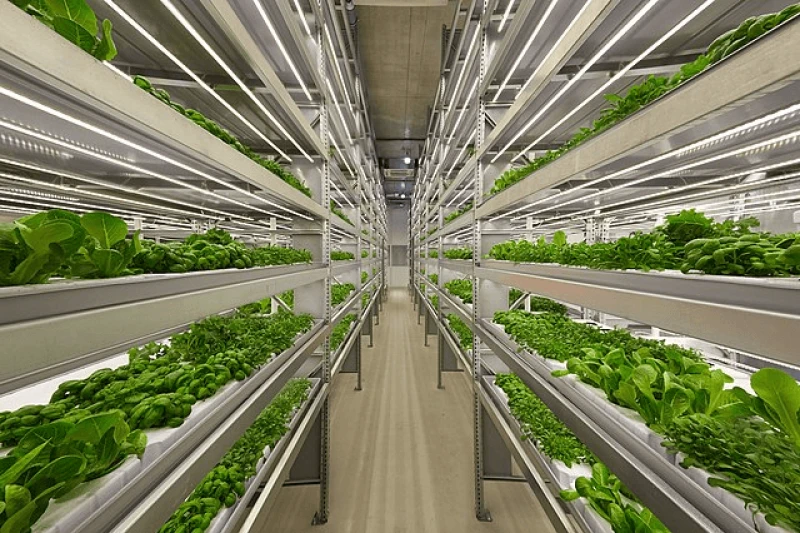‘It’s just hard to be profitable’: Indoor farming is a booming industry — so why are so many farms failing?
‘It’s just hard to be profitable’: Indoor farming is a booming industry — so why are so many farms failing?


Eden Green Technology [is] one of the latest crop of indoor farming companies seeking their fortunes with green factories meant to pump out harvests of fresh produce all year long. The company operates two greenhouses and has broken ground on two more at its Cleburne campus, where the indoor facilities are meant to shelter their portion of the food supply from climate change while using less water and land.
But that’s if the concept works. And players in the industry are betting big even as rivals wobble and fail. California-based Plenty Unlimited this summer broke ground on a $300 million facility, while Kroger announced that it will be expanding its availability of vertically farmed produce. Meanwhile, two indoor farming companies that attracted strong startup money — New Jersey’s AeroFarms and Kentucky’s AppHarvest — filed for bankruptcy reorganization.
Curt Covington, senior director of institutional business at AgAmerica Lending… isn’t convinced that indoor farming operations can work — except maybe in cases where big retailers and greenhouses team up, like Walmart and Plenty, or where grants for urban and vertical farm operations that benefit communities could be made as a form of socially conscious venture capital.
“It’s just hard, given the capital intensity of these types of businesses, to be very profitable,” Covington said.
This is an excerpt. Read the original post here

 | Videos | More... |

Video: Nuclear energy will destroy us? Global warming is an existential threat? Chemicals are massacring bees? Donate to the Green Industrial Complex!
 | Bees & Pollinators | More... |

GLP podcast: Science journalism is a mess. Here’s how to fix it

Mosquito massacre: Can we safely tackle malaria with a CRISPR gene drive?

Are we facing an ‘Insect Apocalypse’ caused by ‘intensive, industrial’ farming and agricultural chemicals? The media say yes; Science says ‘no’
 | Infographics | More... |

Infographic: Global regulatory and health research agencies on whether glyphosate causes cancer
 | GMO FAQs | More... |

Why is there controversy over GMO foods but not GMO drugs?

How are GMOs labeled around the world?

How does genetic engineering differ from conventional breeding?
 | GLP Profiles | More... |

Alex Jones: Right-wing conspiracy theorist stokes fear of GMOs, pesticides to sell ‘health supplements’




 Viewpoint — Fact checking MAHA mythmakers: How wellness influencers and RFK, Jr. undermine American science and health
Viewpoint — Fact checking MAHA mythmakers: How wellness influencers and RFK, Jr. undermine American science and health Viewpoint: Video — Big Solar is gobbling up productive agricultural land and hurting farmers yet providing little energy or sustainabilty gains
Viewpoint: Video — Big Solar is gobbling up productive agricultural land and hurting farmers yet providing little energy or sustainabilty gains Fighting deforestation with CO2: Biotechnology breakthrough creates sustainable palm oil alternative for cosmetics
Fighting deforestation with CO2: Biotechnology breakthrough creates sustainable palm oil alternative for cosmetics Trust issues: What happens when therapists use ChatGPT?
Trust issues: What happens when therapists use ChatGPT? 30-year-old tomato line shows genetic resistance to devastating virus
30-year-old tomato line shows genetic resistance to devastating virus California, Washington, Oregon forge immunization alliance to safeguard vaccine access against federal undermining
California, Washington, Oregon forge immunization alliance to safeguard vaccine access against federal undermining The free-range chicken dilemma: Better for birds, but with substantial costs
The free-range chicken dilemma: Better for birds, but with substantial costs ‘You have to treat the brain first’: Rethinking chronic pain with Sanjay Gupta
‘You have to treat the brain first’: Rethinking chronic pain with Sanjay Gupta
